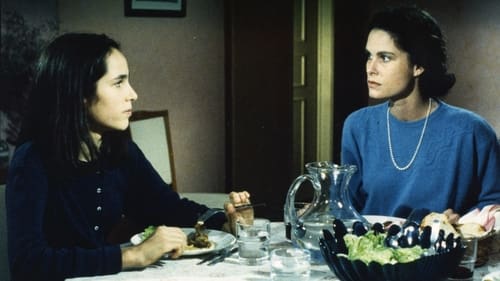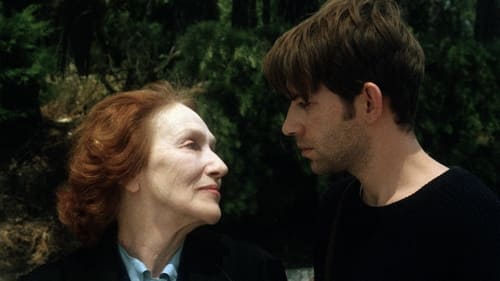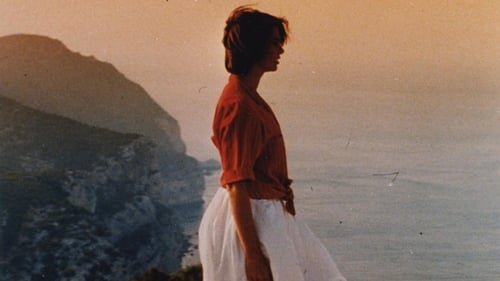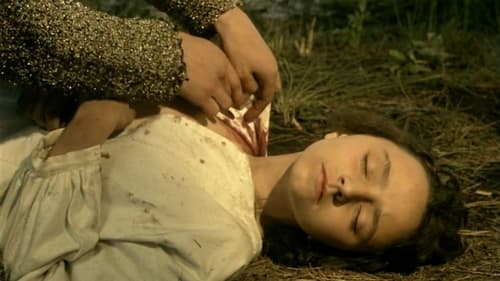
Director
A film by portuguese filmmaker Jorge Silva Melo.

Writer
이윤을 넘어 오직 인간만이 창출 가능한 가치에 대해 논하는 올해의 주목해야 할 포르투갈 영화. 야음을 틈타 기계들이 반출되자 공장 노동자들은 일자리를 잃을까 봐 노심초사한다. 노사 간에 충돌이 일어나고 공장은 반쯤 비게 된다. 하지만 이와 동시에 새로운 비전도 보이기 시작한다. (2017년 제22회 부산국제영화제)

Director
A 2017 documentary film by portuguese filmmakers Jorge Silva Melo e Miguel Aguiar.

Director
Fernando Lemos, a creator who stood out for photographing actors, artists and writers in Portugal from the 1940s and 1950s.

Director
The painter Sofia Areal is a singular case in the portuguese arts. Her paintings are expansive, open, solar, vital and affirmative. The documentary starts in 2011, with the artist being filmed during several ocasions.

Screenplay
A walk for half a century, yes, a letter perhaps. Travels in my life, I could call it, which I like Garrett so much. A traveling as he would like, a loose story, memories, projects, meetings.
Also because, since 1995, I have done several portraits of artists (Palolo, Bravo, Lapa, Skapinakis, Bartolomeu, Angelo, Sena, Ana Vieira and I prepare Sofia Areal and Fernando Lemos), I started to think that this is my life, these meetings , see, hear, cut, show, tease.
I want, with this film continue to show what I see.
[Jorge Silva Melo]

Director
A walk for half a century, yes, a letter perhaps. Travels in my life, I could call it, which I like Garrett so much. A traveling as he would like, a loose story, memories, projects, meetings.
Also because, since 1995, I have done several portraits of artists (Palolo, Bravo, Lapa, Skapinakis, Bartolomeu, Angelo, Sena, Ana Vieira and I prepare Sofia Areal and Fernando Lemos), I started to think that this is my life, these meetings , see, hear, cut, show, tease.
I want, with this film continue to show what I see.
[Jorge Silva Melo]

A walk for half a century, yes, a letter perhaps. Travels in my life, I could call it, which I like Garrett so much. A traveling as he would like, a loose story, memories, projects, meetings.
Also because, since 1995, I have done several portraits of artists (Palolo, Bravo, Lapa, Skapinakis, Bartolomeu, Angelo, Sena, Ana Vieira and I prepare Sofia Areal and Fernando Lemos), I started to think that this is my life, these meetings , see, hear, cut, show, tease.
I want, with this film continue to show what I see.
[Jorge Silva Melo]

Director
José de Guimarães's artistic life changed when he went to Africa in 1967 on military service. A revisit to his past.

Director
Jorge Silva Melo's follow-up to his 2007 documentary film "Nikias Skapinakis - O Teatro dos Outros".

Director
Ana Vieira's place in Portuguese art is unusual: working the trail, the shadow, the passage of light (or bodies?), the reflection, the overlap, the footprint, the memory or planning of the future, her art streak the invisible. And it questions the place of art - and of the viewer, always placed "outside" or with the awareness of "off".

Director
Documentary about the work of the painter António Sena and a way to see the transformation of forms over time

Writer
A father and a son. The father will be seventy years old, the son is in his twenties. The son drives the father to the hospital. Classical music in the radio. The father did not know that the son liked classical music, and the son did not know that that would be the last time he would speak to his father. But Mozart asks that souls rejoice, that men rejoice.

Director
A father and a son. The father will be seventy years old, the son is in his twenties. The son drives the father to the hospital. Classical music in the radio. The father did not know that the son liked classical music, and the son did not know that that would be the last time he would speak to his father. But Mozart asks that souls rejoice, that men rejoice.

Director
A 2009 documentary film by portuguese filmmaker Jorge Silva Melo.

Director
Bartolomeu Cid dos Santos (1931-2008), engraver, painter, is one of the great artists of the 20th century. His world is the crepuscular world of the end of the Portuguese Empire, he who created the first metaphors against the Portuguese Colonialism. And who, with constant vitality, has opposed himself against the New World Order. Knowing, with Eliot, that “the past and the future time are both always present on the present time”

Director
A documentary about Gravura, the Portuguese cooperative founded in Lisbon in 1956.

When he was 16-years-old, a young man was so impressed by the paintings of an obscure painter, that he did his best to get acquainted with him, as an artist, and a painter. Eventually, the artist started writing, and impressing the cultural world of his country to the point he became an established artistic name, and a college teacher. So, too, did that young man grow to be a theater and film writer, producer, and director.

Director
When he was 16-years-old, a young man was so impressed by the paintings of an obscure painter, that he did his best to get acquainted with him, as an artist, and a painter. Eventually, the artist started writing, and impressing the cultural world of his country to the point he became an established artistic name, and a college teacher. So, too, did that young man grow to be a theater and film writer, producer, and director.

Himself
A 58 minute documentary about the life of João Bénard da Costa.

Director
Documentary about the work of the painter Nikias Skapinakis from the exhibition “Imaginary Bedrooms” which in June 2006 opened at the Museum Arpad Scenes-Vieira da Silva. Film by Jorge Silva Melo that closely follows the work of one of the most important painters of the second half of the 20th century, specifically in the area of portrait.

Director
A documentary about the actress Glicínia Quartin on her 80th birthday. Her family, the anarcho-syndicalism, readings at his parents' house, prisons, experimental theaters, surrealists, the encounter with José Ernesto de Sousa on the unfolding of Cinema Novo with “Dom Roberto”, Italy, fantasy, Beckett, Genet, Vitor Garcia, the encounter with Luís Miguel Cintra - a life in motion.

Screenplay
A boy in Lisbon, in this Lisbon in permanent renovation.

Director
A boy in Lisbon, in this Lisbon in permanent renovation.

Director
Joaquim Bravo (Évora, 1935 - Lisbon, 1990) exhibited for the first time in 1964, inaugurating what would become one of the most decisive Portuguese galleries, the 111 in Campo Grande. Its doctrinal influence and its enormous capacity for enthusiasm would mark in the early sixties Évora's group of painters (Lapa, Palolo) and, in the 80's, artists such as Xana and Cabrita Reis. At his death, a moving tribute was paid to him by a huge and varied group of artists ranging from João Vieira to Miranda Justo. His work is scattered in a large number of private and institutional collections.

Director
The film's starting point was an exhibit at the Centre of Modern Art (Gulbenkian) in Lisbon. By evoking a time in the past and the adventures of the artist's generation, Silva Melo is able to depict the oeuvre and the artistic persona of António Palolo.

The city during the beginning of cinema. The typical city at the time of the dictatorship. The New Lisbon of the New Cinema. Lisbon after the Revolution. The white city of foreigners. A geographical and moviegoer screenplay of Lisbon through the images of films and testimonies of several filmmakers who filmed in Lisbon.

Writer
Catalyst in the story of crossed paths is a 1957 Ford Fairlane being driven through Portugal’s Alentejo region to a new owner. Film’s overly protracted opening has car’s drivers (Filipe Cochofel, Antonio Pedro Figueiredo) joy riding the night away until the roadster breaks down. Momentum picks up at sunrise with their attempts to fix the car. A retired mechanic-turned-beekeeper with a heart condition (Canto e Castro) does the trick and convinces Figueiredo to take him cross-country on a motorbike to look up an old friend. Cochofel and the mechanic’s alarmed niece (Maysa Marta) follow in pursuit. The old man dies peacefully on the road, but Figueiredo, having wholeheartedly grasped his deliverance mission, keeps going.

Writer
One night Jorge will meet with a Japanese industrialist, who will allow him to abandon his teaching position and resume his chemical work. However, when he gets home he finds a person there.

Director
One night Jorge will meet with a Japanese industrialist, who will allow him to abandon his teaching position and resume his chemical work. However, when he gets home he finds a person there.

Redheaded twins Armando and Beatriz always dreamed of being firefighters but during a rainy, uneventful winter they find themselves spending less time putting out infernos than they do helping neighbors who’ve locked themselves out of their apartments. This is how Armando meets a pretty young woman with whom he begins a tentative courtship. But soon a rift grows between the siblings and, spurred by Armando’s exaggerated stories about his nascent relationship, Beatriz begins experiencing aural hallucinations that can only be remedied through music and, finally, the love of a stranger. Pinto made this impassioned fairy tale as part of a series of films about the four elements. - FilmLinc

Writer
Xavier returns to Lisbon after a military stint, determined to lead a meaningful life, only to find his world closing in on him.

Writer
Nogueira, a man in his fifties, is a relic of times long past. While the youngsters at the school where he works as a caretaker still think the world is their oyster, Nogueira knows that, for him, most doors have long closed.

Writer
Summer of 1964. The professor Carlos and the couple Dário and Alda spend time together in the beach during vacations. Away from the colonial war, everything seems lost in time.

Director
Summer of 1964. The professor Carlos and the couple Dário and Alda spend time together in the beach during vacations. Away from the colonial war, everything seems lost in time.

Voice
Set four years after the Portuguese revolution and the simultaneous loss of the Portuguese empire in Africa, the story concerns a director who sells guns to finance his play.

Screenplay
This visually striking drama is taken from the classic Japanese novel Tales Of Genji by Marasaki Shikibu. Set in modern Portugal, Joao (Luis Miguel Cintra) is a left-wing political leader and ladies man with a bright future. His ex-wife Isabel (Manuela de Freitas) both loves and hates him as Joao plays on her wavering emotional state. He is sent to Italy to retrieve wayward family member Antonia (Caroline Chaniolleau), the beautiful young woman with a terrorist boyfriend. Joao is forced to recognize his feelings as the political and amorous climate changes around him.

Camilo
A story about character created by Reinaldo Ferreira (1897-1935), action reporter, mystery novelist and emotion journalist.

Radio Producer
It is the end of summer and Isabel is a relationship with Diogo. She don't quite know what she wants from her life going forward as her father gets sick.

Writer
Ambulatory history, freely inspired by Georg Büchner's biography (1813-37) and the reasons that led him first to political intervention and then to strict isolation. With students of unidentified present time (1968? 1970?), the themes developed, in Büchner, are triggered by the publication of "The Messenger of Hesse", a pamphlet addressed to the peasants, urging them to revolt. Their misunderstanding, as well as the repression of the young revolutionaries, leads Büchner to a particularly skeptical and painful attitude...

Director
Ambulatory history, freely inspired by Georg Büchner's biography (1813-37) and the reasons that led him first to political intervention and then to strict isolation. With students of unidentified present time (1968? 1970?), the themes developed, in Büchner, are triggered by the publication of "The Messenger of Hesse", a pamphlet addressed to the peasants, urging them to revolt. Their misunderstanding, as well as the repression of the young revolutionaries, leads Büchner to a particularly skeptical and painful attitude...

Deuxième Prête
During the century of the Spanish Gold, Doña Prouhèze, wife of a nobleman, deeply loves Don Rodrigo, who is forced to leave Spain and go to America. Meanwhile Prouhèze is sent to Africa to rule the city of Mogador. Ten years later Rodrigo leaves America and travels to Africa in search of Prouhèze to find out that she died and eventually meeting her daughter.

Producer
Director Jorge Silva Melo has developed a viable, though highly intellectual mystery story about the world of art and culture and murder in this somewhat theatrical presentation. When German artist Bernd Hoffmann (Michael König) arrives in Lisbon to oversee the installation of his paintings in a joint exhibition with another Berlin artist, Hanna Brauer (Charlotte Schwab), Hanna never shows up. Hoffmann is puzzled because he is certain he saw a video sequence with Hanna at the exhibition, and he begins to look for her. Another Lisbon cultural center, a theater, is also having problems that may or may not be related -- and the mystery deepens when Hanna is found dead, either by her own hand, or murdered.

Screenplay
Director Jorge Silva Melo has developed a viable, though highly intellectual mystery story about the world of art and culture and murder in this somewhat theatrical presentation. When German artist Bernd Hoffmann (Michael König) arrives in Lisbon to oversee the installation of his paintings in a joint exhibition with another Berlin artist, Hanna Brauer (Charlotte Schwab), Hanna never shows up. Hoffmann is puzzled because he is certain he saw a video sequence with Hanna at the exhibition, and he begins to look for her. Another Lisbon cultural center, a theater, is also having problems that may or may not be related -- and the mystery deepens when Hanna is found dead, either by her own hand, or murdered.

Director
Director Jorge Silva Melo has developed a viable, though highly intellectual mystery story about the world of art and culture and murder in this somewhat theatrical presentation. When German artist Bernd Hoffmann (Michael König) arrives in Lisbon to oversee the installation of his paintings in a joint exhibition with another Berlin artist, Hanna Brauer (Charlotte Schwab), Hanna never shows up. Hoffmann is puzzled because he is certain he saw a video sequence with Hanna at the exhibition, and he begins to look for her. Another Lisbon cultural center, a theater, is also having problems that may or may not be related -- and the mystery deepens when Hanna is found dead, either by her own hand, or murdered.

Urbain
In a specialized, hermetic drama about love won and lost, not necessarily by the same individuals, novice director Christine Laurent has focused on the backstage melodramas of an opera company. The conductor for an upcoming performance of the Marriage of Figaro has his mind and heart on other matters -- an entrancing diva who keeps him enraptured with her presence and voice. In the meantime, he finds fault with his cast members who cannot, of course, measure up to the woman of his dreams. As singers encounter one problem or another, it is clear that something has to be done about the conductor. Director Laurent designed costumes for both theater and opera, giving her some insight into the venue.

American journalist (voice)
"Essay on the Military and the Power", a phrase that also belongs to the title of "Gestures & Fragments", sums up the spirit of the film, based on three points of view on the same theme: Otelo Saraiva de Carvalho and Eduardo Lourenço, in their own roles, and the one played by Robert Kramer, as an American journalist bent on seeking explanations for the process of the Portuguese Revolution.

Painter
19세기 포르투갈의 작가인 벤세슬라우 드 모라이스의 특별한 삶을 다룬 영화. 가족을 뒤로하고 포르투갈의 식민지였던 마카오로 건너간 그는 중국 여인과 결혼한다. 그리고 다시 일본 여인과 사랑에 빠져 남은 인생을 일본에서 보내기로 한다. 1982년 칸영화제 경쟁부문 상영작.

Narrator / Fausto
The film was to be a documentary, but evolved during production to a fictional film. It nevertheless adheres strictly to the poems and letters exchanged by two of the most outstanding names of the Modernist Movement, Fernando Pessoa (in Lisbon) and Mário de Sá-Carneiro (in Paris). Their endless conversation was dramatically and suddenly terminated.

D. Paio
A bewitching combinatory adaptation of the Bluebeard tale and a 15th century Portuguese fable of a damsel who disguises herself as a knight errant.

Screenplay
The film of a performance of a selection of cabaret comedy sketches by Karl Valentin, with Jorge Silva Melo as stage director. The show was a complete success and has become almost legendary. Solveig Nordlund shot it, adding some more sketches that weren’t included on the show.

Valentin 2
The film of a performance of a selection of cabaret comedy sketches by Karl Valentin, with Jorge Silva Melo as stage director. The show was a complete success and has become almost legendary. Solveig Nordlund shot it, adding some more sketches that weren’t included on the show.

Production Assistant
A woman arrives home, apparently coming from her job, and sets out about house chores and placing every object around her with extreme care. The only company she has is the radio, tuned to a station of popular music hits that the audience can ask for by telephone. There is a single hint that she may have breast cancer. Then, she sets the table for a large dinner - for one - including a champagne bottle. She commits suicide by pills overdose, before she utters a word.

Art Direction
A woman arrives home, apparently coming from her job, and sets out about house chores and placing every object around her with extreme care. The only company she has is the radio, tuned to a station of popular music hits that the audience can ask for by telephone. There is a single hint that she may have breast cancer. Then, she sets the table for a large dinner - for one - including a champagne bottle. She commits suicide by pills overdose, before she utters a word.

Director
The film of a performance of a selection of cabaret comedy sketches by Karl Valentin, with Jorge Silva Melo as stage director. The show was a complete success and has become almost legendary. Solveig Nordlund shot it, adding some more sketches that weren’t included on the show.

Writer
A train trip with a mother and her son, to whom she speaks.

O Outro Teatro proposes a look at the independent theater manifestations that came in the wake of the pioneering gestures of Teatro Experimental do Porto.

Production Manager
A portrait of the everyday life of a typical middle-class family in parallel with the fall of the "Estado Novo", the 48-year dictatorship led by Salazar. The daughters' conflicts and frustrations with their parents, their grandmother and their maid find an obvious echo in the country's collective events. The Carnation Revolution is about to explode.

Assistant Director
A representation of fiction and documentary about the museum of Óbidos, Portugal.

Second Unit
A representation of fiction and documentary about the museum of Óbidos, Portugal.

Art Direction
A representation of fiction and documentary about the museum of Óbidos, Portugal.

Assistant Director
“I think my film represents above all the proof to those who want to understand and accept it, that poetry can’t be filmed, that it is useless to try” - João César Monteiro

Assistant Director
The tribulations of two friends who, in despair, start begging from door-to-door, and are given a bundle including, literally, a pair of deadman's shoes

Production Manager
The tribulations of two friends who, in despair, start begging from door-to-door, and are given a bundle including, literally, a pair of deadman's shoes

The tribulations of two friends who, in despair, start begging from door-to-door, and are given a bundle including, literally, a pair of deadman's shoes







